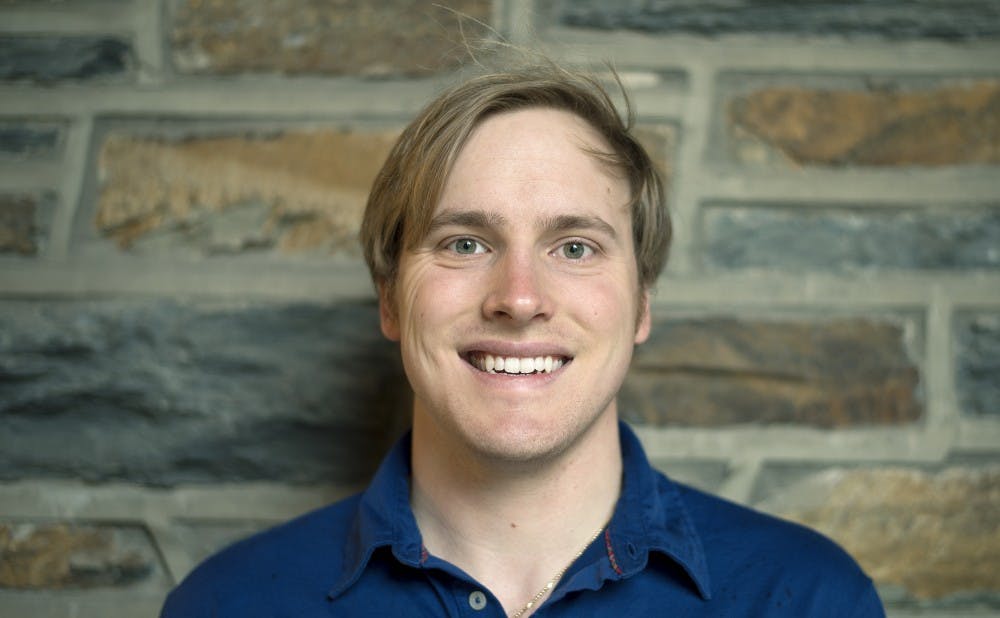The Chronicle: What are your main goals for the year?
Gregory Moore: I have two main goals for this upcoming year. The first is to create consistent programming throughout the year, where each week students can count on there being several DUU events. Right now, we have a tendency to cluster our programming in the later parts of the semester, often having multiple large events in the same week and fewer large events during other weeks.
The second main goal focuses on navigating the upcoming reduction in programming space. The present construction has reduced event spaces considerably with the West Union offline. This upcoming year, I aim to explore underutilized locations for programming like Central Campus in order to diversify the locations of events and provide easily accessible events for all students.
TC: What is your prior involvement with DUU and why did you want to become the president?
GM: I became involved with DUU in the Spring of freshman year as the Jazz@ committee chair. In filling that role over the last two years, I gained experience programming on a regular basis with Jazz@ the Mary Lou and managing events in unconventional venues on campus like the Keohane patio. Additionally, collaborations were a large part of Jazz@’s programming. I wanted to become DUU president so that I could weave my experiences from Jazz@ into DUU’s programming as a whole. This upcoming year especially, DUU has a lot to gain from increased collaboration, both within DUU and with other campus organizations, programming in varied venues and putting on more consistent events.
TC: What do you feel was DUU's greatest strength or accomplishment this year?
GM: This past year, DUU made huge internal progress. We clarified committee responsibility, redefined executive board roles and restructured our budgeting process. These changes will allow this upcoming year’s [executive] board to hit the ground running and focus on programming.
Externally, all of the committees of DUU have put together a number of popular and well-attended events, a precedent that we plan to continue next year. To highlight one committee, Small Town Records did an especially great job increasing its presence on campus and signing new artists. Its studio is now booked constantly for recordings by student and guest artists. I think [Small Town Records]’s progress is great not only for the future DUU, but also for the future of student artists on campus.
TC: The LDOC performances were selected by a DUU committee. What do you think of this year's lineup?
GM: This year, I am really excited that there is a wide range of musical genres being captured in the LDOC lineup. The LDOC committee puts a lot of effort into researching musical talent to include in the lineup each year, and the event is consistently among the most memorable for many Duke students.
TC: For students who haven't had the opportunity to interact with DUU, how would you describe your organization?
GM: Broadly, I would describe DUU as an organization dedicated to servicing the student body’s desire for extracurricular enrichment. DUU does so by providing a portfolio of frequent, high-quality entertainment and engagement with concerts, speakers, live broadcast and much more. More specifically, DUU is the largest student-run programming body at Duke. It is comprised of 14 programming committees, each with its own dedicated body of graduate and undergraduate students. The chairs of each committee sit on the DUU [executive] board along with about a half dozen non-programming student members who manage external affairs and the overall operation of the Union. How DUU exactly carries out each event is extremely varied between the committees, each with their own programming focus. All Duke students are welcome to join the committees and play an active role in planning events encompassing LDOC to radio broadcasts. I encourage anyone who wants to become involved to reach out to myself or anyone else on the executive board.
TC: If there was one thing that you would want students to know about the upcoming year, what would it be?
GM: This upcoming year, DUU will be putting into effect more convenient ways for students to give feedback on our programming. Be on the lookout for emails and comment boxes around campus in the Fall.
Get The Chronicle straight to your inbox
Signup for our weekly newsletter. Cancel at any time.

